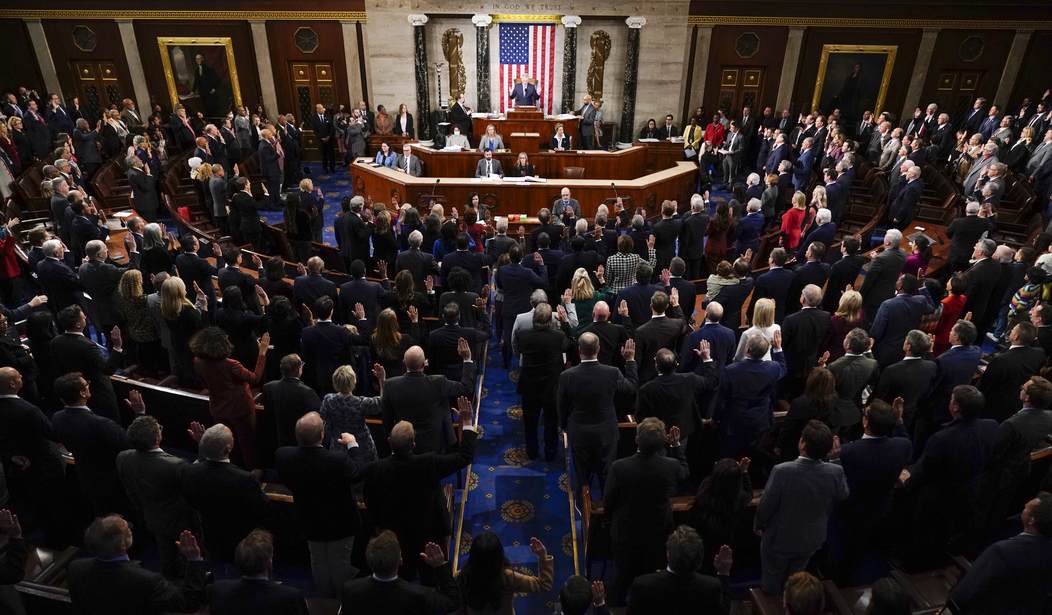Once upon a time there were Republicans in New England serving in the U.S. House of Representatives. I know this because in 1996 - the year I lost my attempt for a fourth term in office - the rug was pulled out from GOP members of that institution. We had a New England Democrat wave that was the beginning of a change in politics as we know it in the region.
In 1994 my opponent's brother committed 11 felonies for election fraud against me, a historic first. Yet, he was allowed to run against me successfully in 1996.
However, the start of the Republican Party's demise in New England was the much bigger story of the 1996 elections.
Today, we have zero Republicans from New England serving in the House.
Just two years before the 1996 elections, New England actually counted nine GOP members. When the dust had settled from the elections, the massacre left only one Republican congressman who had received over 51% of the vote with four members losing their reelection bids. Yes, Republicans who prevailed did so with less than 51% of the vote - that's ugly. The sad part is more than 25 years later New England has still not recovered.
Massachusetts has not had a Republican congressman since that date, nor has Maine or Rhode Island. Connecticut has not had a Republican since 2007.
In 1995 there was a Republican congressman from each of the New England states except for Vermont - Connecticut was split between three Republicans and three Democrats.
Connecticut Rep. Nancy Johnson (6th District) who had never had a close election won at 49.62% of the vote, to her challenger's 48.93% - less than a percentage point. Connecticut Rep. Chris Shays (4th District) in the most Republican district in the state at the time was the only Republican to clear 51% in all of New England that year.
It seemed to me that GOP leaders had given up on the Bob Dole-Jack Kemp ticket and purposely caused the demise of New England for the GOP.
The main reason for the Democrat landslide was a reversal of typical GOP campaign strategy. This would have been fine if the GOP leaders had communicated this reversal to its candidates running in elections so the latter could have adjusted their individual campaign strategies.
I lost my election despite having nearly $250,000 in unspent campaign funds. Had I known of the new strategies in place I would have gone on television with a heavier media campaign.
For the last two weeks of the campaign here was the strategy in a nutshell: GOP leaders convinced the Dole-Kemp campaign to pull all television commercials in New England. Campaign funds went to California instead. The GOP national campaign therefore went dark in all of New England. President Bill Clinton and his campaign increased their spending in New England, even putting forth a personal ad for my opponent which featured the former president himself.
Why such an approach? GOP leaders felt that possibly the party could pick up some of the 50+ House seats in California with more TV ad spending.
The reason the GOP never did this in past presidential elections was because they anticipated that their presidential candidates were not able to win in California. Thus the 1996 change in strategy was a big waste. All other presidential candidates spent money in states they felt they had a chance of winning. The strategy was misplaced. Dole was not winning California, but the Dole campaign spent millions there instead of attempting to pick off winnable states like those in New England. The result? All the GOP candidates in New England got clobbered while even those who managed to win struggled.
Even if GOP leaders found that strategy to be prudent they should have conveyed it to each campaign at a minimum and to the National Republican Congressional Committee, which could have back-filled media expenditures.
In 2022 California Rep. Kevin McCarthy (now Speaker) attempted to change the trend. It worked well in New York state and even in California while picking up unexpected Republican victories there. It was a smart move on McCarthy's part as the 2022 election was more a referendum on President Joe Biden.
With competitive spending on very good candidates even in New England it brought the region close to electing two Republicans to Congress - and both were minorities.
With strong candidates who have election experience, along with strong financial support, I am confident that 2024 will allow New England to break the ice and finally get some Republican representation in the House again. It is much needed.

























Join the conversation as a VIP Member